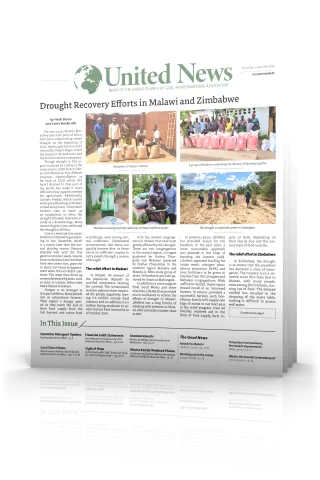Reaching Out to the Lonely

How can we become better-attuned to the needs of others so we can better serve them?
Even now, after so many years, writing about this is still painful. My husband left me alone at age 30 to raise three children, including one with cerebral palsy. I suffered emotional breakdown, heartbreak and intense loneliness for many years.
If you’ve ever felt like crying from the rooftop “I am lonely!” you are not alone. If you’ve longed for someone to notice, and no one did, I know how you feel. I was one of millions who felt this deep loneliness, and some feel it more intensely than others.
Among the lonely you will find people of all ages and backgrounds. You will find them everywhere—in schools, universities, workplaces, prisons, coffee shops, hospitals, nursing homes, and even in your own family and church. These are the children of single parents, the bullied teens, the single people who’ve never found a mate, the husband or wife whose spouse is unsupportive, the neighbor with a disability, the widows and widowers, the homeless and those who have never felt loved or respected. Can you add some more people to this list? I am sure you can.
Created to be Social
God created us to have relationships, firstly with Him, but also with other humans. Loneliness can be intense and very hard to live with. It can be difficult to alleviate on our own. Just as our spiritual and physical needs depend on input from outside, so our emotional-social needs include receiving love and respect. “This is My commandment,” Christ said, “that you love one another as I have loved you” (John 15:12).
Although this kind of suffering is often in our very midst, why is it that we may not be well-attuned to the loneliness of others? I think these are some of the reasons:
- Not looking beyond our own needs, to those of others (Philippians 2:4).
- Waiting for someone to tell us there is a need.
- Not recognizing the reality of emotional pain, and why it’s difficult to express.
Despite these challenges, you can learn to be a powerful support in another person’s life. First, ask God to open doors for you in this area (Matthew 7:7-8). It will require a level of commitment to make a meaningful, and sometimes lifelong, difference in the life of another person. The learning curve in discovering how best to assist will include setting aside some of your time on a regular basis, and perhaps some financial expense when you see a need.
It requires effort and learning to find out how to best meet others’ needs. You could start by simply asking, “What would be helpful?” Then be patient and a good listener. Be gentle and reassuring. Let them know you are there for them and that you care.
Let the lonely person know that you will be praying for them. The Lord is near to those who are brokenhearted (Psalm 34:18; Matthew 11:28), so be sure to involve Him in your efforts to help your friend.
And always remember, love, respect, loyalty, and confidentiality will go a long way toward healing. As you walk alongside a lonely person, you are serving Christ (Matthew 25:37-40).
Helping as a Church Family
There are many ways the Church can work together to make a meaningful difference in a person’s life. Sending monthly “Care Cards” is one example of a loving step in this direction.
Scripture explains that we have a responsibility to reach out to others—especially those in the Church. “Therefore, as we have opportunity, let us do good to all, especially to those who are of the household of faith” (Galatians 6:10).
I am very thankful to friends and brethren who took me under their wings and helped to turn around the pain of loneliness in my life. And I am deeply grateful to God for my wonderful, loving second husband, Ken, who was with me for 33 years until he died two years ago. The love Ken gave me in the years we were together still radiates in my heart each day. God’s people really can make a difference and ease the pain of loneliness.
Let’s remember that “the law is fulfilled [made full] in one word, even in this: ‘You shall love your neighbor as yourself’” (Galatians 5:14).
Anna Pickett





